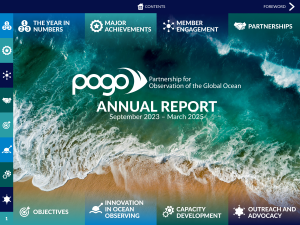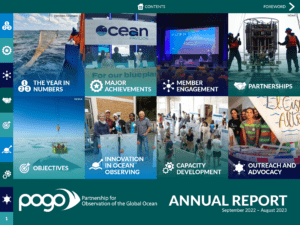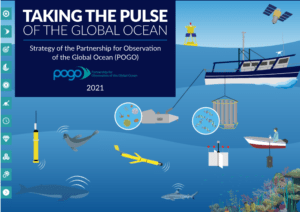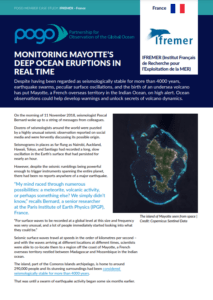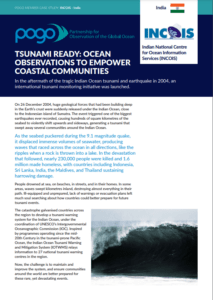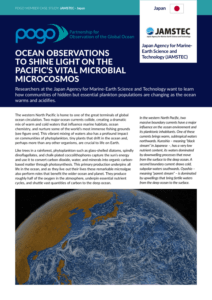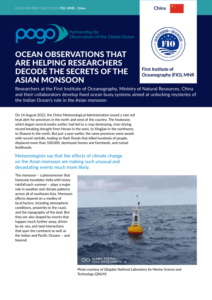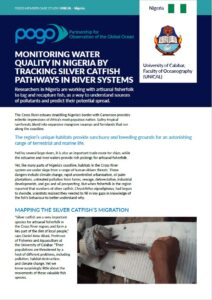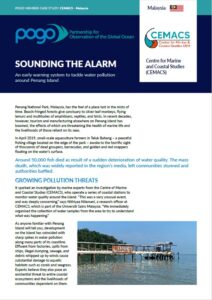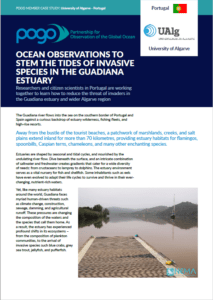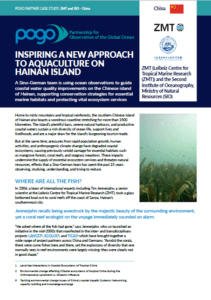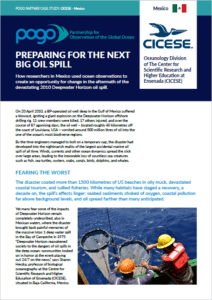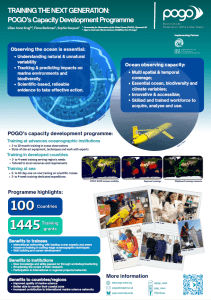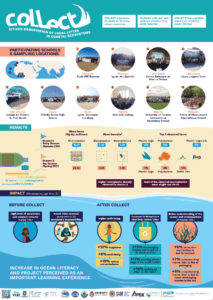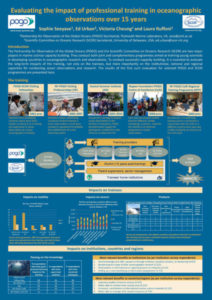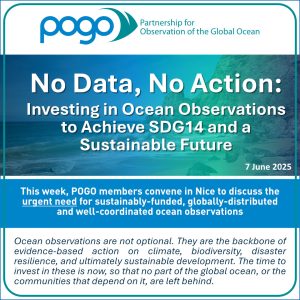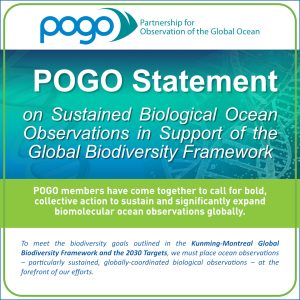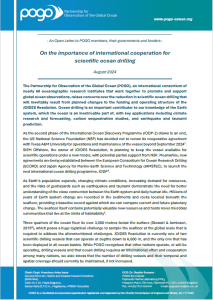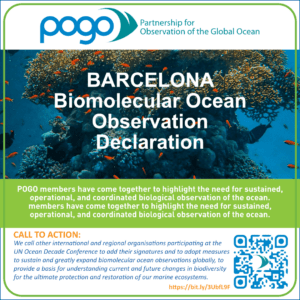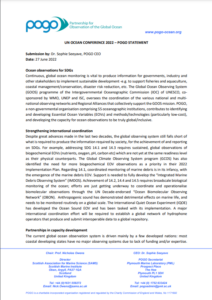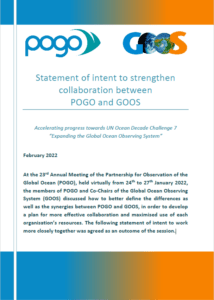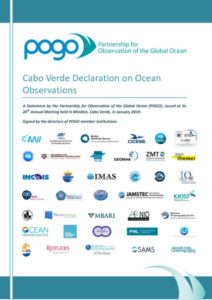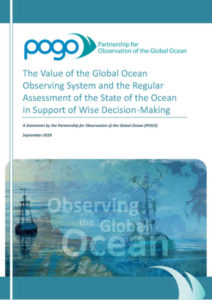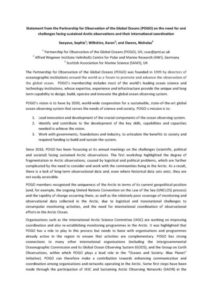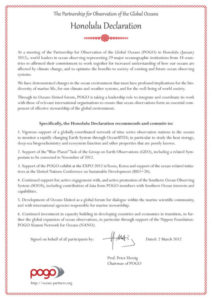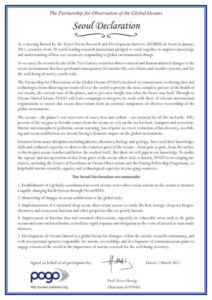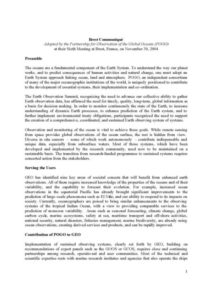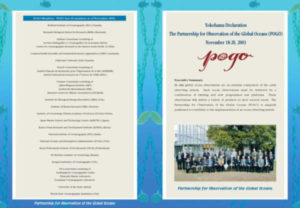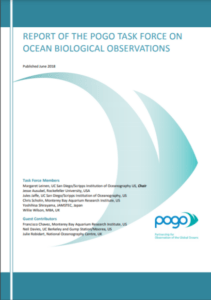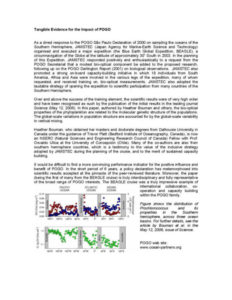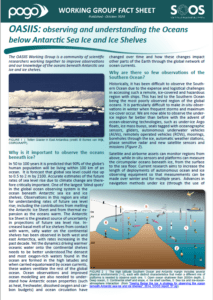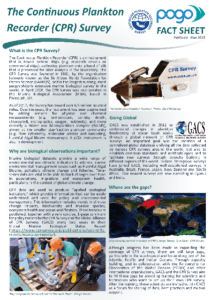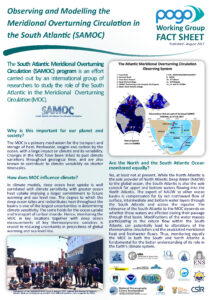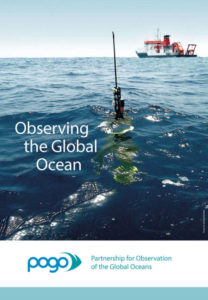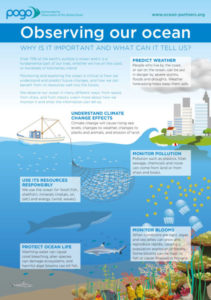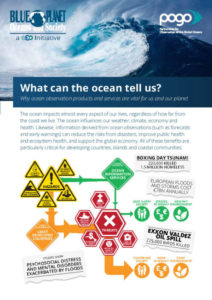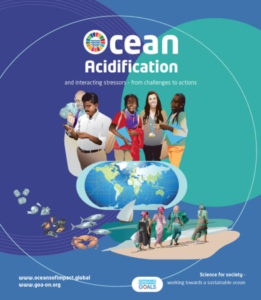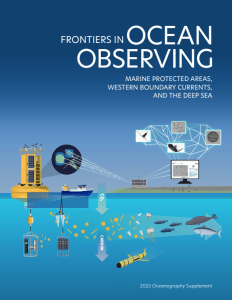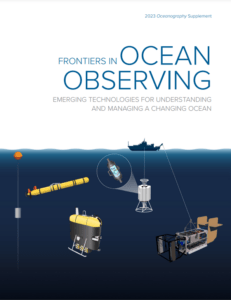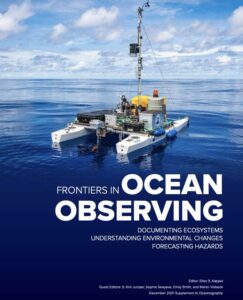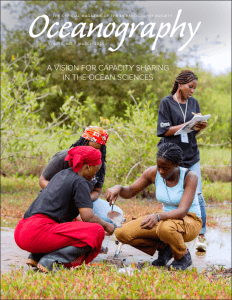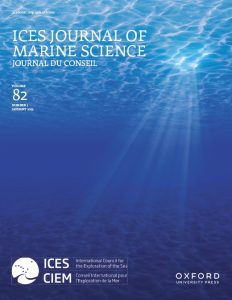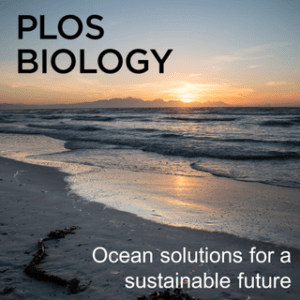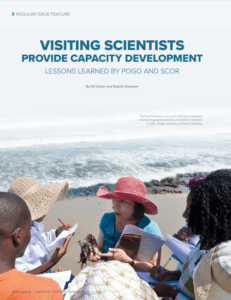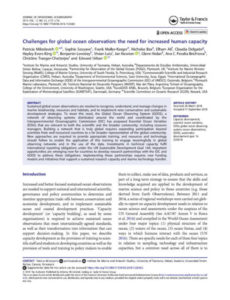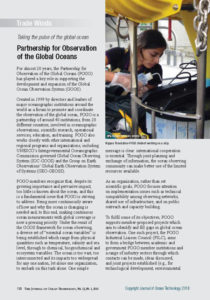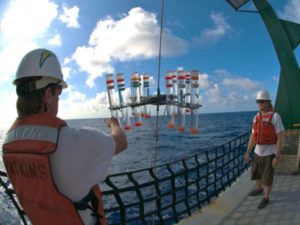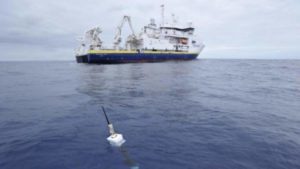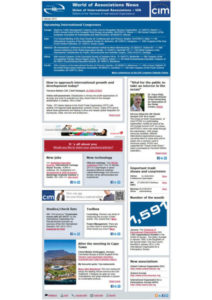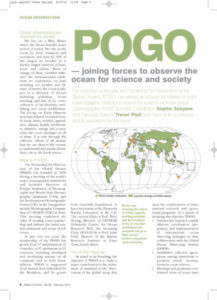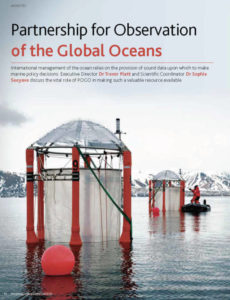POGO holds a meeting of its members annually, where the important issues and trends in marine science are discussed. Frequently, the discussion leads to a communiqué or call for action. For example, at the meeting in São Paulo, a declaration was made on the urgency to enhance ocean observations in the Southern Hemisphere, which were seen to be sparse compared with those in the Northern Hemisphere. This declaration led a major oceanographic expedition, conducted by Japan, a circumnavigation of the globe in the Southern Hemisphere.
POGO also produces pamphlets and brochures aimed at policy makers and non-specialists to raise awareness about the ocean and the need to observe on a regular basis.
Additionally, POGO-led Working Groups and Professional Training Initiatives have summarised their findings and recommendations in some Factsheets.
Pogo Publications
POGO Annual Reports
POGO Strategy PDFs
Case Studies
Posters
Declarations and Communiques
POGO issues a number of documents aimed at the broader scientific community, funding agencies, policy makers and the general public. Among these are Declarations and statements that are often issued in conjunction with its Annual Meetings.
Reports
Factsheets
Brochures, leaflets and flyers
Videos
More videos on POGO’s YouTube Channel:
External publications
Frontiers in Ocean Observing
The purpose of the three Frontiers in Ocean Observing supplements to Oceanography is to widely disseminate information about the many different ways in which scientists observe the ocean to improve our understanding and support the sustainable management of the sea and its resources. Through the short articles, we wish to make ocean observing technologies, fieldwork, scientific results, and their societal relevance accessible to a broad audience and inspire new collaborations. Support for these publications was provided by Ocean Networks Canada, the National Oceanic and Atmospheric Administration’s Global Ocean Monitoring and Observing Program, and the Partnership for Observation of the Global Ocean. Issue 1 was also supported by US Arctic Research Commission.
Journal papers, brochures, articles etc

